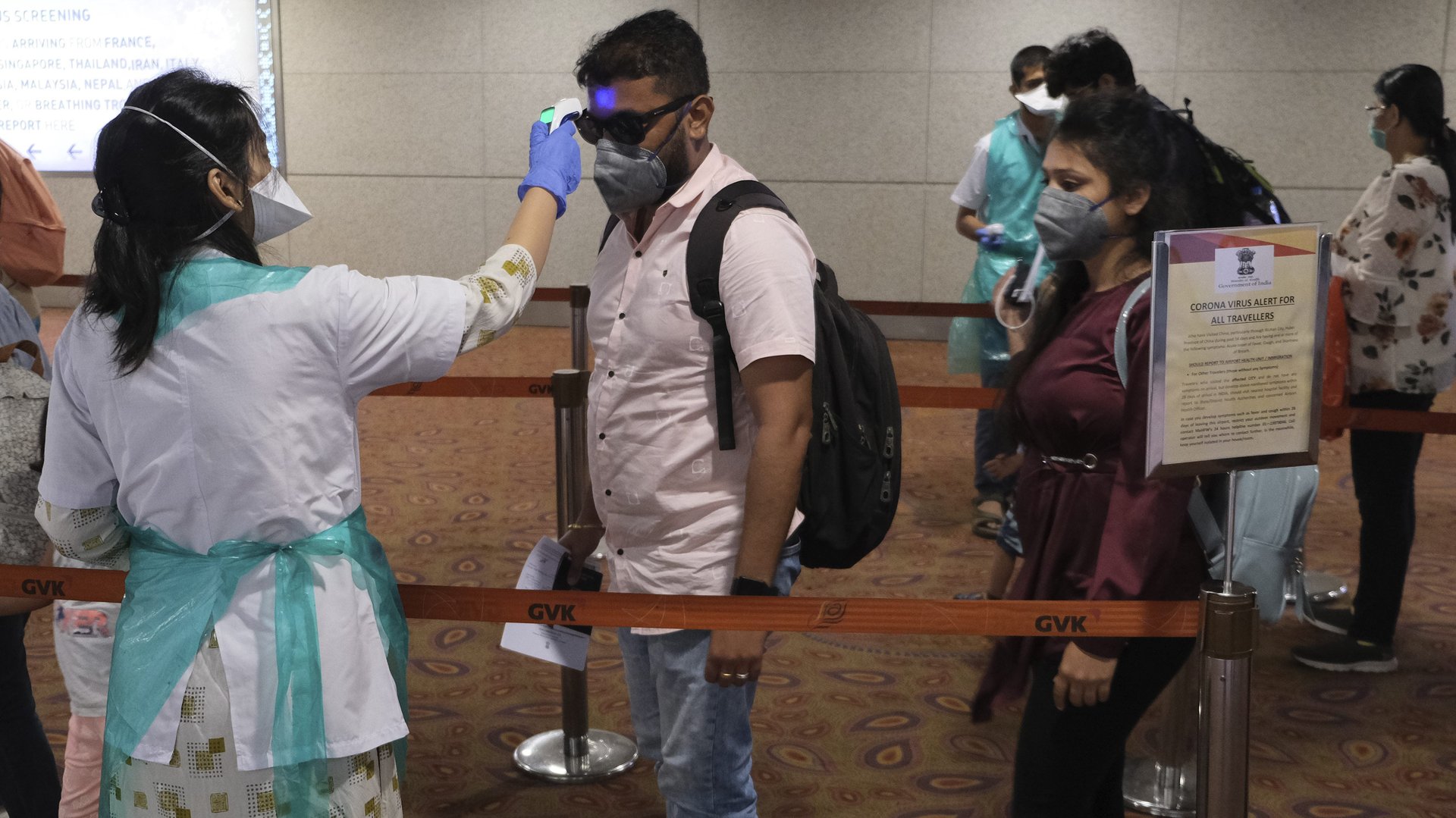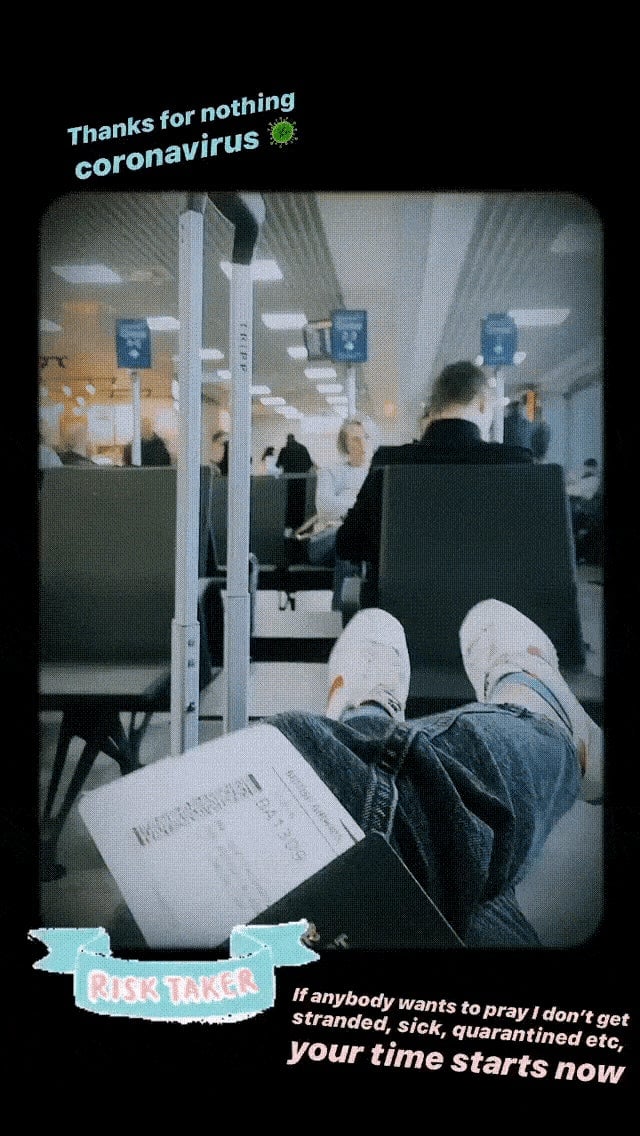I escaped Covid-19 in Europe and beat India’s lockdown, but I’m not sure I’m any safer
I, along with a friend from Singapore, had meticulously planned our trip to Spain, including flight, Eurorail, and Airbnb bookings, four months in advance.


I, along with a friend from Singapore, had meticulously planned our trip to Spain, including flight, Eurorail, and Airbnb bookings, four months in advance.
On Feb. 26, I took off from Mumbai for London on my way to Scotland, where I was to spend two weeks with my brother, and parents who had already arrived there. The gravity of the coronavirus outbreak had not dawned upon the world yet, even though Wuhan had already been under a lockdown for almost a month by then.
All I could think of was gallivanting around Barcelona, Seville, Madrid beginning March 12. But exactly a week before, Italy was badly hit.
I was left racing against two clocks. As the virus tore through Europe, my travel plans were getting altered by the hour. And could I make it back to India before the country went into lockdown?
Plans derailed
My friend’s mother was the first to panic.
We kept reasoning, though: “We’re responsible girls and we’ll take care. And we can just take a flight out immediately if things worsen, right?” Besides, Spain was still safe, with only a few scattered cases.
Then, on March 2, Madrid reported 30.
Singapore had placed travel bans for China, Korea, Iran, and northern Italy. We didn’t want my friend locked out or forced into quarantine.
India wasn’t making much noise till then, so, for a moment, I even considered proceeding all alone. But then, if tourist spots get shut down and traveling becomes cumbersome, it would be futile.
Thus, with the heaviest hearts, we called our trip off finally. After accounting for a few refunds, I’d lost around Rs50,000 ($674), if not more.
I booked to fly back home with my parents on March 19. However, the pandemic kept ballooning, including in Britain, making us all the more nervous.
Considering the higher risk faced by the aged, we decided it was best for my parents to stay put with my brother. Not keen on being stuck 7,000 miles away from home and working odd hours, I advanced my return by a week to March 12—India barred flights from the UK from March 18.
Even as I packed my bags, the numbers kept shooting up: On March 11, Scotland’s count was up to 36 cases, London had 104, over a third of Italy was under a lockdown, and the World Health Organisation categorised coronavirus as a pandemic.
Spain, as predicted, was crippled. A friend messaged from Madrid: “Don’t come…they might be closing airports soon for about 16 days.” Amid the frenzy, I’d forgotten to inform her that I’d already cancelled. While the Madrid airport didn’t shut, cafes, bars, restaurants, cinemas, gyms, and non-food shops did within a few days.
Cases in India, meanwhile, hovered around the 70-mark. I figured it was so low because of under-testing but at least the country wasn’t frenzied and traveling was still unaffected there for the moment.
However, on that very day, March 11, India decided to wake up.
It issued an advisory against 10 countries, including Spain. The UK, luckily, was still not on the list.
Travelling in the time of coronavirus
On March 12, I frantically tried checking in for my 3pm flight at 10am. British Airways kept telling me to go to the counter instead.
At Aberdeen airport, an hour before my flight to London, the first question I was asked was, “Have you visited China, Italy, Iran, Republic of Korea, France, Spain, and Germany after Feb. 15, 2020?”
When I asked the official why, she said, “No idea, maybe because of coronavirus.” She tagged my check-in bag through to Mumbai but I still only had my Aberdeen-London boarding pass in hand. What if I got stranded in London?

I decided to take life the way the rest of the world was taking it now—one step at a time.
Keeping my wits, I reasoned they may want to conduct additional checks, rejig flights with people cancelling, or something else, so they were not handing over boarding passes just yet.
At least I was on my way finally, even though the journey was unnerving, too.
Knowing that coronavirus symptoms needn’t manifest for up to two weeks and that asymptomatic carriers, too, could infect others was a constant concern. Aberdeen airport is not super crowded so I could keep a six-feet distance from most people at most times. I sanitised every time I touched a tray or held a door.
On the plane, though, it was impossible. Luckily, one seat was free between me and my co-passenger. But every time he coughed, I held my breath; and every time I coughed, I felt everyone around me holding breath. Most of us burrowed our heads in our T-shirts and sweatshirts.
I still had a four-hour wait in London and an eight-hour flight after that. That is if they issued my boarding pass. I crossed my fingers and toes.
Mercifully, there were few obstacles at the London airport and I got my boarding pass. Although, I was still worried that no one was doing enough to keep me safe.
Heathrow’s terminal 5 was emptier than I had ever seen it before. Flights from China, one of the biggest sources of inbound tourists in the UK, were on hold. Airlines had cancelled the Italy routes, too.
At 9.50pm, after over an hour’s delay caused by the thorough cleaning up of the plane, I boarded my London-Mumbai plane.
This time, too, the seat next to me was empty. I buried my face in my neck pillow and dozed off. I didn’t move an inch during the journey, except to eat two meals. Ten minutes prior to landing, I filled out two copies of a form seeking my travel history of the past two weeks and symptoms like fever, cough, and body aches.
I braced for an intense medical check-up after landing.
At the health official’s desk at Mumbai airport, the thermometer let me off the hook. The lady then asked for both copies of the form; four others handed over theirs almost simultaneously. Seconds later, she returned a stamped copy—there was no way she could have read what I’d written.
A friend who’d also recently travelled abroad told me he’d even withheld information about his travel history to avoid hassles. I realised I could’ve bluffed, too, as could hundreds of others. Not like anyone was checking the details against the visa stamps on people’s passports.
Such poor filtering amidst a global pandemic was highly disconcerting.
On March 17, Spain reported 368 deaths in 24 hours. The country was completely locked down. India, meanwhile, has only 124 cases till now. Considering the scale of the leaks in the system, what are the chances that there are thousands of more carriers and sick people out and about. Even confirmed patients are fleeing quarantine, visiting malls, and attending engagement parties.
In Aberdeen, the Scottish town of 240,000 where my brother lived, you could go weeks before seeing a person through your window. Self-quarantine in 18 million-strong Mumbai is seemingly harder.
I’ve been back a week and I have seven more days to go before clearing my self-imposed 14-day incubation period. Once I am sure of not being a carrier anymore, I’ll begin worrying about who around me potentially is.